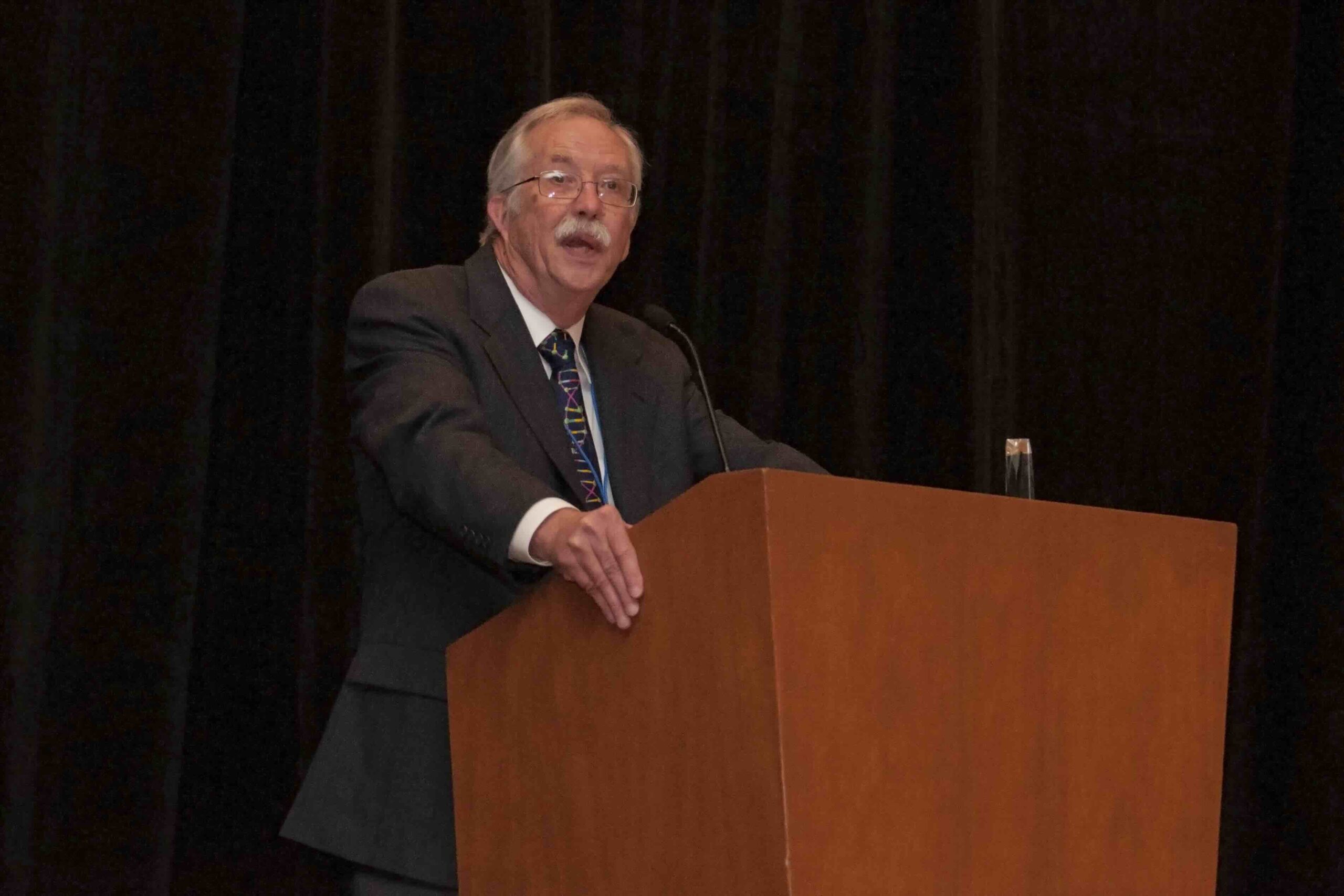Remembering Dr. Edward Blake, Pioneer Scientist Who Rewrote Boundaries of Justice
A tribute to the pioneer whose science reshaped the courts and restored freedom to the wrongly convicted.
11.18.25 By Peter Neufeld, Barry Scheck, and Vanessa Potkin
There are people whose work quietly improves a system. And then there are those rare few who remake the system entirely, leaving it more honest, more rigorous, and immeasurably more humane than how they found it. Dr. Edward Blake was one of those rare few.
This summer, we lost a dear friend, trusted mentor, and scientific visionary. Dr. Blake passed away peacefully, surrounded by his family, at the age of 80. For all of us at the Innocence Project — and for every person whose freedom was restored through the clarity of his science — his passing leaves an ache that is difficult to articulate. But the legacy he leaves behind is unmistakable.
A Scientist Who Saw the Future Before Anyone Else
Before DNA testing reshaped the landscape of criminal justice, Dr. Blake was already pushing beyond the limits of conventional serology. In those early years, he invented more accurate and reliable methods to understand biological evidence. At a time when many saw only the constraints of the technology, he saw possibility — and he built it with his own hands.
He would go on to usher in the DNA revolution. In 1986, Dr. Blake conducted the first DNA test ever admitted in an American court. Two years later, he secured the world’s first post-conviction DNA exoneration, proving what had once been thought nearly impossible: science could reopen the past and correct its deepest wrongs. And in 1992, he was the first to use DNA to free a man who had been sentenced to death.
These weren’t abstract milestones. They were turning points in the lives of real people — people who had been silenced, forgotten, or written off. Dr. Blake helped give them back their names, their freedom, and their future.
A Relentless Pursuit of Truth — No Matter How Difficult the Case
During the Innocence Project’s early years, when our caseload was full of degraded samples, minute quantities of biological material, and evidence that had failed to yield results in government labs, Dr. Blake was the person we turned to. He produced exculpatory results in more than 50 of the earliest DNA exonerations — a staggering number, especially when considering the obstacles.
His reports were legendary. While a typical government lab might produce a two-page analysis, Dr. Blake’s often ran a hundred pages. Every line revealed his devotion to scientific integrity, transparency, and precision. And just as often, his analysis laid bare the failures that had contributed to wrongful convictions: sloppy lab practices, misleading forensic testimony, sometimes even outright fraud.
Dr. Blake insisted that we confront these failings head-on. He pushed us not merely to correct individual injustices, but to change the systems that allowed them to occur. His work sparked official audits, inspired systemic reforms, and led directly to additional exonerations. In Canada, his early casework prompted Provincial Commissions of Inquiry led by Supreme Court justices — a national reckoning with how the innocent had been lost in the machinery of justice.
He didn’t just expand the field of forensic science. He expanded our understanding of what accountability demands.
A Person of Principle, with a Deep Sense of Humanity
For all his brilliance, what defined Dr. Blake just as much was his moral clarity. He carried himself with decency and an unwavering belief that the pursuit of truth is a moral act — one that carries a duty to the lives at stake.
He listened. He cared. He showed up. And he never lost sight of the people whose futures depended on the quality of his work.
In 2015, the national Innocence Network honored Dr. Blake with its Lifetime Achievement Award — a recognition not only of his scientific contributions, but of the values he embodied: integrity, clarity, and justice.
Dr. Blake is survived by his wife, Barbara Siegel; his sons, Ben (Spouse: Lyli) and Daniel (Spouse: Rachel); and his grandchildren, Jack and Rowan. Our hearts are with them.
He is also survived by every scientist who now works in a field he helped invent, every lawyer who learned to demand more rigorous forensic standards, and every person who walks free because Dr. Blake refused to accept mediocrity, indifference, or doubt where science could bring certainty.
We already miss his thoughtfulness, his fierce intellect, and his unbending moral core. But we carry his lessons with us — in our science, in our advocacy, and in our determination to fight for the truth, no matter how long it has been ignored.
Dr. Blake opened the door to innocence. He taught us how to keep pushing it wider. And for that, we will always be grateful.

Leave a Reply
Thank you for visiting us. You can learn more about how we consider cases here. Please avoid sharing any personal information in the comments below and join us in making this a hate-speech free and safe space for everyone.